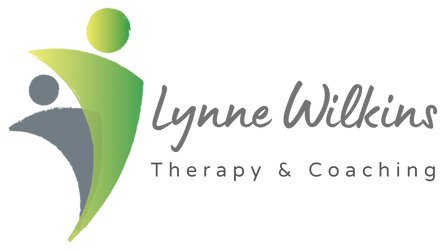What is Cognitive Hypnotherapy
Quest Cognitive Hypnotherapy
I was trained by the Quest Institute in Cognitive Hypnotherapy. This short video explains the principles behind this.
What we do in Cognitive Hypnotherapy
Cognitive Hypnotherapy is a tremendously flexible and modern therapeutic approach, constantly evolving to take advantage of new therapy techniques and developments in neuroscience. I make use NLP (or Neuro Linguistic Programming) to understand and treat your problem. This deals with interplay between your mind (the Neuro), your language (the Linguistic) and how this affects your feelings, thoughts and behaviour (the Programming bit).
I use hypnosis to help ‘undo’ your problem programming. As you usually ‘do’ your problem in a light trance state, I help you to use a similar state to 'undo' your problem. Most clients find hypnosis a pleasant and relaxing experience. Rest assured you can’t be made to do anything you don’t want to. I record hypnotic suggestions designed just for you (called a Wordweave) which I send you as an audio file to download and listen to in between sessions.
As part of your treatment, I also draw upon and make use of a wide range of different disciplines including Emotional Freedom Technique (EFT), Gestalt Therapy and Transactional Analysis. Where do problems come from?
Your problem is a bit like a hole in a road. You might be aware it’s there, even if you can’t see it all the time. You don’t want to fall down it again but the unconscious part of your mind can keep you going down the same path leading you down the hole despite your good intentions. You will have been programmed to do this from learned experience, especially in childhood. As time goes by, your problem pathway can get more and more trodden down and confirmed. Everyday trance
We spend around 90% of our day in some kind of light trance state. Our brain manages everyday experience like this on ‘automatic pilot’ to save energy. We can shift effortlessly from a' brushing teeth trance' one minute to a 'putting clothes on trance' the next. It’s a highly efficient way for our brains to be on automatic pilot and conserve energy but not so great when our mind takes us down a problem hole.
First Hypnotherapy Session
This is usually a longer session where we'll explore your problem in depth. I will ask you structured questions to ‘map’ out the history of your problem and what you are looking to achieve with hypnotherapy. We will discover more about how your mind is working to create a problem and what you want your life to be like without it. This session may or may not included actual hypnosis depending on how our discussion goes. Some people take longer than others to ‘unload’ what has been bothering them but I will usually include some kind of coping technique if we haven’t had time for hypnosis. Everyone is different and I tune into what might work best for you at this point in our work together.
Further Hypnotherapy Sessions
Sessions after this will also be conversational and I will design each session according to where you are at that time with what you came to see me for (sometimes this changes along the journey too). There’s no set pattern for any particular problem, everything is tailored to you..
There are no hard and fast rules about how long I will need to see you. An average amount of sessions needed is around 4-6. Some clients may be helped relatively quickly (eg a simple phobia) and some clients opt to see me for much longer whether there’s more work needed (because everybody is so different) or sometimes people come to see me for further coaching or therapy.
What is hypnosis like?
Most people say it’s like having a gentle and pleasant daydream. It’s less of a ‘special state’ you might imagine. I think of it as a variance, a bit deeper than the everyday ‘automatic pilot’ state you do yourself on a regular basis. Lots of us do this ‘automatic pilot’ trance state when we repeat things we do all the time, like driving to our regular workplace when we get there and realise that we weren’t that conscious about how we got there. It’s a bit unnerving sometimes but our brains have to be able to do this to save energy. It would be exhausting having to think about everything we do. This is certainly not what a lot of people associate with hypnosis, the kind that is used on a stage with people doing silly things. You will be aware of what is going on and cannot be made to do anything against your will. In any case, deep trances are simply not needed for nearly all the work I do. You don’t ‘do’ your problem in a deep trance so it’s just not needed to induce one.
The two key questions
As a Quest trained Cognitive Hypnotherapist, I want to find out two key things - what is going on with the way your mind produces your problem pathway and how can we use that to lead you out of it? The answers to these questions give a clear purpose for our work together and also enable me to be flexible in how I treat you. I won’t be interested in the label you or someone else gives your problem but I will be fascinated by how you’re ‘doing’ it which will be completely unique to you. Depending on how you do yours, I will respond to that and make your treatment as individual as you are.
Research findings on Cognitive Hypnotherapy
I am qualified in Quest Cognitive Hypnotherapy (QCH) and was trained by renowned therapist and author Trevor Silvester who established the internationally recognised Quest Institute in 2001 at Regents University in London. In September 2015, The Mental Health Review published a peer-reviewed article comparing this kind of hypnotherapy with national results for the Improving Access to Psychological Therapies (IAPT) programme. The programme suggested that, “QCH may offer a brief effective treatment for clients with clinically significant levels of anxiety and/or depression, widening client choice”. In an average of six sessions, 71% reported themselves recovered, compared to 42% using other IAPT therapies (such as CBT and Interpersonal Psychotherapy).
Are you ready to start your journey from your problem to your solution - change is a call away!
Disclaimer - please note results can vary from person to person






